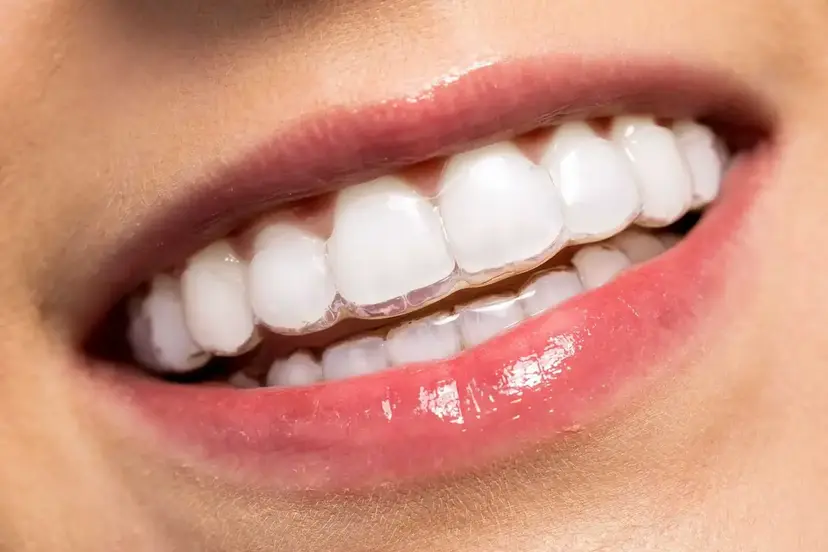MakeO blog
Your smile says a lot about you. But what about the dental fillings that help to restore your smile? Dental fillings are an essential tool for restoring tooth health, but it's vital to understand what they are made of. While various fillings promise a restored tooth, not all materials are created equal. Some might be harmful.
If you are about to get dental amalgam filling, then think again. This article talks about the potential risks of using dental amalgam fillings. By the end, you'll be better informed to make choices that ensure the radiance of your smile without compromising your overall well-being.
What are Dental Amalgam Fillings?
Dental amalgam fillings have been in use for over 150 years. A stable alloy, dental amalgam is the silver-coloured material you often see in filled teeth. It's durable and less expensive than other types. Despite its great shelf life, it's not without controversies, mainly due to its mercury content.
Potential Risks of Dental Amalgams You Need to Know Before Fillings
Understanding the possible drawbacks of dental amalgam fillings is crucial for anyone considering this treatment option. Here’s a more detailed look at the concerns:
- Mercury Content and Release
Dental amalgams are made up of roughly 50% mercury. Over time, especially when chewing or grinding, these fillings can release tiny amounts of mercury vapour. This vapour is then inhaled and absorbed by the lungs, leading to cumulative exposure over the years.
- Allergic Reactions
While rare, some individuals might be allergic to the metals found in dental amalgam. This can lead to symptoms like mouth sores, itching, and other skin reactions. If one suspects an allergic reaction, it’s important to consult a dentist or allergist immediately.
- Tooth Discolouration
Dental amalgam fillings can cause the surrounding tooth structure to take on a greyish hue, especially if the amalgam leaks or if there's a breakdown of the filling's edge. This can be an aesthetic concern for many.
- Structural Concerns
Dental amalgam doesn’t bond with the tooth enamel directly. Thus, to keep the filling in place, a larger portion of the tooth might need to be removed. This has the potential to weaken the tooth structure and make it more prone to cracks or breaks.
- Galvanic Response
When dental amalgam fillings are placed close to fillings of a different metal type, a tiny electrical current can occur due to the interaction between the metals and the saline present in saliva. This situation can lead to increased sensitivity or a metallic taste in the mouth.
- Environmental Concerns
The use and disposal of dental amalgam fillings pose environmental concerns due to mercury pollution. Dental clinics are encouraged to have separators to reduce mercury entering the water systems, but it's still a topic of environmental debate.
Understanding these potential risks can guide individuals in making an informed decision about their dental health and the choice of fillings. It’s essential to consult with a dentist, weigh the pros and cons, and consider personal health factors before deciding.
Mercury in Dental Amalgams: Is it Safe?
Mercury is a neurotoxin. When it comes to dental amalgams, they can release minute amounts of mercury vapours. Though research suggests that the levels are below safety thresholds, the continuous release over the years can be a concern for some. Note that the World Health Organisation recognises that dental amalgams contribute significantly to mercury exposure in those with these fillings.
Who Should Avoid Dental Amalgam Fillings?
- Pregnant women:
As a precautionary measure, it's best to avoid exposure to the mercury in the dental amalgam fillings if you are pregnant.
- Children:
- People with mercury allergies:
They can develop oral lesions or other contact reactions.
- Individuals with kidney disorders:
This is because people who suffer from kidney disorders have a reduced ability to process and eliminate mercury.
Should You Remove Your Amalgam Fillings?
While concerns exist, it's essential not to panic. Removal can lead to a significant release of mercury vapours. If your amalgam fillings are in good condition and there's no decay beneath them, it might be best to leave them intact. However, if you're concerned, consult a dentist and discuss your worries with him or her before you make an informed decision.
Alternatives to Amalgams
Here are some of the alternatives to dental amalgams that you must know:
Composite Resin:
Matches your tooth colour and is suitable for visible teeth.
Porcelain:
Stain-resistant and can mimic the tooth's natural appearance.
Gold:
Highly durable and long-lasting, but can be more expensive.
Each alternative has its unique advantages and challenges. The choice often depends on the patient's specific needs, the location of the filling, budget considerations, and aesthetic preferences.Consulting with a trusted dentist can help tailor the best solution for individual dental concerns.
The Bottomline
Your health, especially oral health, is of utmost importance. With growing awareness, it's essential to make informed choices. Dental amalgam fillings, though effective, come with certain downsides and potential risks. As you ponder over the right filling for you, consider upgrading to makeO toothsi dental care products like makeO toothsi electro and Floss X smart water flosser to elevate your daily oral care regimen.
FAQs:
What is the primary concern with dental amalgam fillings?
The primary concern is the mercury content and its potential release over time which can have serious consequences to your health.
Are amalgam fillings common ?
In India, many still opt for dental amalgam fillings instead of their alternatives. This is because of their cost-effectiveness in comparison to other fillings like porcelain and gold.
Are dental amalgam fillings banned anywhere?
Yes, several countries like Norway, Sweden, etc have restrictions on use of dental amalgam especially by vulnerable groups who can be negatively impacted by the use of dental amalgam fillings.
How can I protect myself if I have amalgam fillings?
Regular dental check-ups ensure the fillings remain intact and pose minimal risks. If you feel your amalgam fillings are not fitting like they used to, get them checked immediately by your dentist.
Are there safer alternatives to dental amalgam fillings?
Yes, options like composite resin, gold and porcelain fillings are available today for people who want to ditch dental amalgam fillings.
related categories
Related articles

Types of Braces: Removable vs Fixed Braces, Which is Right For You?

This Diwali, Smile Bright With makeO Teeth Whitening Kit

Dr. Pravin Shetty: Pioneer in Lingual Orthodontics & Innovative Smile Solutions
How do I Know I’m the Right Candidate for makeO toothsi Teeth Aligners?

